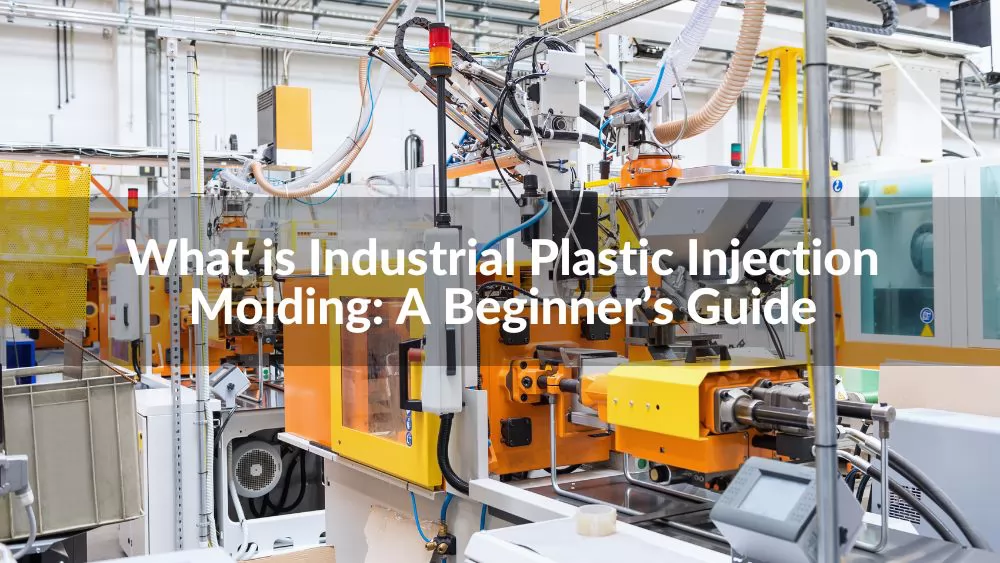
Industrial injection molding is a cornerstone of modern manufacturing, enabling the production of a vast array of plastic parts with high precision and efficiency. This process involves injecting molten plastic into a meticulously designed mold, where it cools and solidifies into the desired shape. In this guide, we will explore various aspects of industrial injection molding, including its fundamental principles, diverse applications, and the factors influencing material selection. We will also delve into the cost considerations and highlight some of the leading companies in the industry. Whether you are new to injection molding or seeking to deepen your understanding, this comprehensive overview will provide valuable insights into this essential manufacturing process.
List of Contents |
What Is Industrial Plastic Injection Molding?
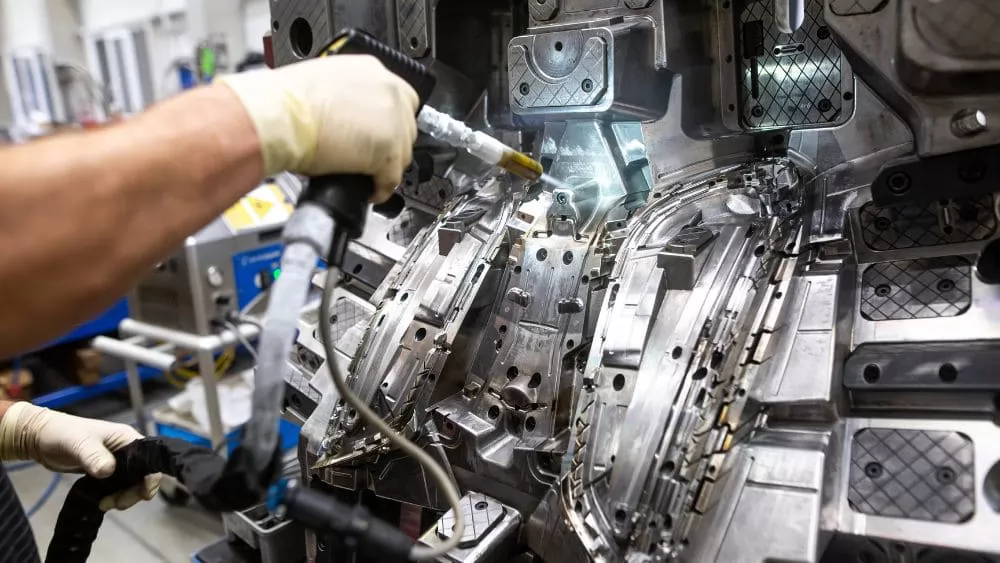
Industrial plastic injection molding is a widely-used manufacturing process for producing parts by injecting molten plastic material into a mold. This process is particularly effective for mass-producing identical plastic products with high precision and efficiency. It involves heating plastic granules until they become molten and then injecting this molten plastic under high pressure into a mold cavity. Once the plastic cools and solidifies, the mold is opened, and the part is ejected.
This method is known for its rapid production capabilities, allowing for the creation of high quantities of the same plastic product within a short time frame. The high-performance qualities of plastic materials, including their ability to withstand high temperatures, have led to plastics increasingly replacing metals in various applications.
How Does the Injection Molding Process Produce Industrial Products?
The injection molding process is a widely used method for manufacturing industrial products from plastic. It involves injecting heated plastic material into a mold to create parts with the desired shape. Once the mold is filled, it is kept at a constant temperature to ensure uniform solidification of the material. Pressure is maintained during cooling to prevent material from flowing back and to minimize shrinkage. Additional plastic pellets are added for the next cycle while the part cools. When the cooling is complete, the mold opens, allowing the finished part to be ejected. The cycle then repeats as the mold closes again, and the process continues. This system is highly efficient, capable of producing over 10,000 plastic parts per day depending on factors such as design, size, and material.
Below is a clearer table of steps for injection molding to produce industrial products.
| Steps | Description |
|---|---|
| Step 1: Selecting Thermoplastic & Mold | Choosing appropriate material & designing precise molds for intended function |
| Step 2: Feeding & Melting | Pellets fed into hopper, melted in heated barrel by reciprocating screw |
| Step 3: Injecting Plastic Into Mold | Molten plastic forced through nozzle into mold cavity under high pressure |
| Step 4: Holding & Cooling Time | Pressure maintained to ensure accurate dimensions after injection as part cools/solidifies |
| Step 5: Ejection & Finishing Processes |
Part ejected once cooled; any additional procedures applied to meet quality standards |
What Are the Characteristics of Injection Molding?
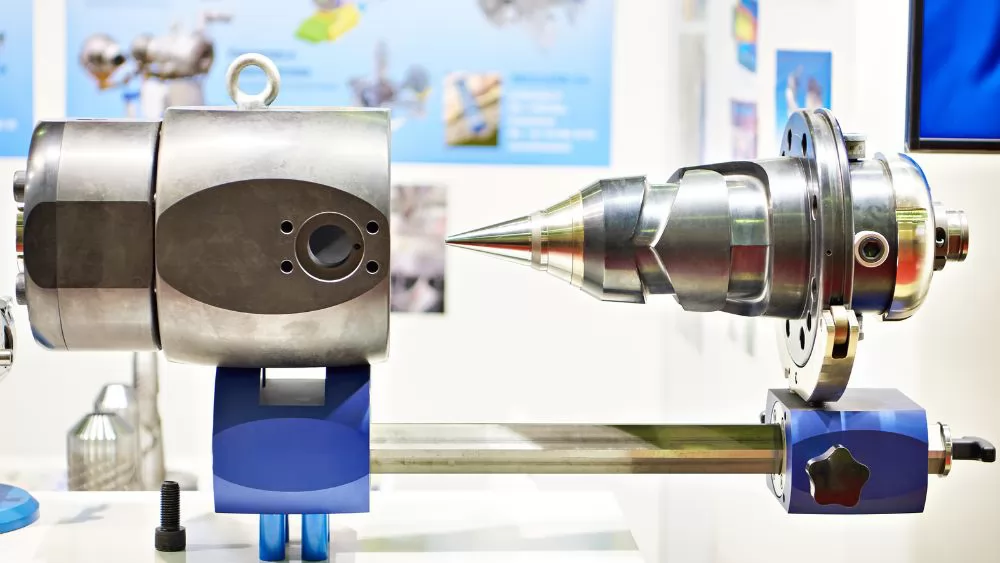
Intricate Manufacturing Process
Plastic injection molding is a highly specialized and complex process that requires careful design and manufacturing. At its core, it involves creating mold cavities and cores that can accurately replicate the desired shape and dimensions of the product. The manufacturing of these three-dimensional cavities and cores is the most challenging part of the entire process, requiring advanced skills and expertise.
Multitude of Mold Components
Plastic injection molds typically consist of numerous components, ranging from the mold base to various core pins and other elements. Each detail needs to be meticulously crafted. Due to the stringent requirements for the shape and dimensional accuracy of the molded parts, the molds often undergo repeated sampling and modifications to ensure consistency and quality in the final products. Moreover, the design and manufacturing of the molds need to be tailored to the specific characteristics of different plastic materials used.
Collaborative Efforts Across Specialties
The high degree of customization and precision required in plastic injection molding necessitates collaboration across multiple specialties, as a single factory cannot solely handle the entire process. It involves product designers conceiving the ideal product form, and mold manufacturers translating those designs into physical molds, ultimately enabling mass production.
Stringent Precision and Quality Standards
Due to the extended service life of plastic injection molds, there are extremely high demands for manufacturing precision and quality. High-end molds often adopt an inserts or fully assembled structure, with stringent accuracy requirements for each individual component to ensure dimensional stability over an extended period of use.
What Are the Types of Industrial Plastic Injection Molding?
In the industrial realm, there are several distinct injection molding techniques, each with its unique characteristics and applications:
Standard Industrial Injection Molding
This is the most fundamental form of industrial injection molding. Molten plastic is injected into a mold cavity under high pressure, where it cools and solidifies into the desired shape. This technique is suitable for producing a wide range of industrial plastic parts, from simple components to complex geometries, with high dimensional accuracy and repeatability.
Industrial Insert Molding
Insert molding involves placing pre-fabricated inserts, such as metal reinforcements or threaded components, into the mold cavity before injecting the plastic. This industrial technique is commonly used to create plastic parts with embedded metal inserts for added strength, wear resistance, or attachment points in various industries.
Industrial Multi-shot Injection Molding
In multi-shot industrial injection molding, two or more different plastic materials are sequentially injected into the same mold cavity, creating a single industrial part with distinct material regions. This process enables the production of parts with varying properties for industrial applications.
Industrial Overmolding
Overmolding is a specialized form of multi-shot industrial injection molding, where one plastic material is molded over a pre-existing substrate or component. This industrial technique is commonly used to create soft-grip handles, protective covers, or decorative coatings on various industrial products.
Industrial Gas-Assisted Injection Molding
Gas-assisted industrial injection molding involves injecting an inert gas, such as nitrogen, into the mold cavity along with the molten plastic. The gas creates hollow sections within the industrial part, reducing material usage and cycle times while maintaining structural integrity.
Industrial Reaction Injection Molding (RIM)
Reaction injection molding is an industrial process used for producing high-strength, lightweight parts by mixing and injecting two reactive liquid components (typically a polyurethane system) into a heated mold. The resulting chemical reaction creates a rigid, foam-like structure for industrial applications.
What Are the Industrial Applications of Plastic Injection Molding?

-
Automotive Industry: Many components in cars, trucks, and other vehicles are manufactured using plastic injection molding, including dashboards, bumpers, interior panels, and electrical housings.
-
Electronics: Plastic injection molding is used to produce various components for electronic devices such as computer housings, connectors, and casings for mobile phones and other gadgets.
-
Medical Devices: The medical industry utilizes plastic injection molding to manufacture items like syringes, IV components, pill dispensers, and medical equipment housings due to the material's sterilizability and cost-effectiveness.
-
Aerospace: Components for aircraft interiors, such as seating components, overhead bins, and air ducts, are often produced using plastic injection molding due to its lightweight properties and design flexibility.
-
Construction: Plastic injection molding is employed to create various construction materials such as pipes, fittings, insulation panels, and decorative elements.
-
Packaging: Plastic injection molding is widely used in the packaging industry to produce bottles, caps, closures, and other packaging materials for food, beverages, cosmetics, and household products.

What Is the Cost of Industrial Injection Molding?
We’ve created a table to help you check out the costs of industrial injection molding.
How to Choose the Best Plastic for Industrial Injection Molding?
Selecting a plastic suitable for industrial injection molding involves several key factors that can affect the manufacturing process and final product performance. Here are some key considerations:
End-use requirements: The primary function and application of the product determine the type of plastic required. For example, if the product requires high strength and rigidity, materials such as polycarbonate (PC) or acrylonitrile butadiene styrene (ABS) are suitable choices. For flexible applications, thermoplastics such as polyethylene (PE) or polypropylene (PP) may be better.
Mechanical properties: Consider required mechanical properties such as tensile strength, impact resistance and flexibility. Engineering resins such as nylon (PA) have excellent mechanical properties and are commonly used in automotive and industrial components.
Chemical resistance: Plastics with good chemical resistance will be better suited for use in environments with corrosive or toxic gases. For example, polyvinyl chloride (PVC) has good chemical resistance and is often used for pipes and chemical storage.
Thermal Properties: For high temperature applications, materials such as polyetheretherketone (PEEK) are recommended due to their high thermal resistance.
Cost considerations: Commodity plastics such as PP and PE are more cost-effective for high-volume production, while specialty resins such as PEEK, although more expensive, offer superior performance for demanding applications.
Processing characteristics: Material properties such as viscosity, shrinkage and cooling time can affect the injection molding process. Lower viscosity materials make it easier to fill complex molds, while lower shrinkage materials ensure dimensional stability.
But, in the absence of comprehensive application requirements and design analysis, it is difficult to recommend suitable materials. However, based on the characteristics of some common plastics, we can refer to the following empirical rules for preliminary judgment:
-
ABS plastic should be the top choice - it has a reasonable price, strong durability, relatively good toughness, and an excellent appearance. Even when some design standards are not fully met, ABS still exhibits good tolerance. The only drawback is its relatively low melting point.
-
If low cost and high rigidity are required, and appearance quality is not a primary concern, polypropylene (PP) can be a good choice.
-
For applications that require higher strength and better heat resistance than ABS, polycarbonate (PC) is a more suitable material, but its tolerance for plastic part design standards is slightly lower than that of ABS.
-
For applications that prioritize good appearance and transparency, acrylic (PMMA) is a better option, although it has some brittleness defects. If transparency and strength are the top priorities, PC will outperform PMMA, but it falls slightly behind in terms of appearance.
What Are the Reliable Industrial Injection Molding Companies?
In order not to take up a lot of space, I will briefly list the three most recommended and reliable industrial injection molding companies.
1. Hing Tung Shenzhen Precision Technology Co., LTD
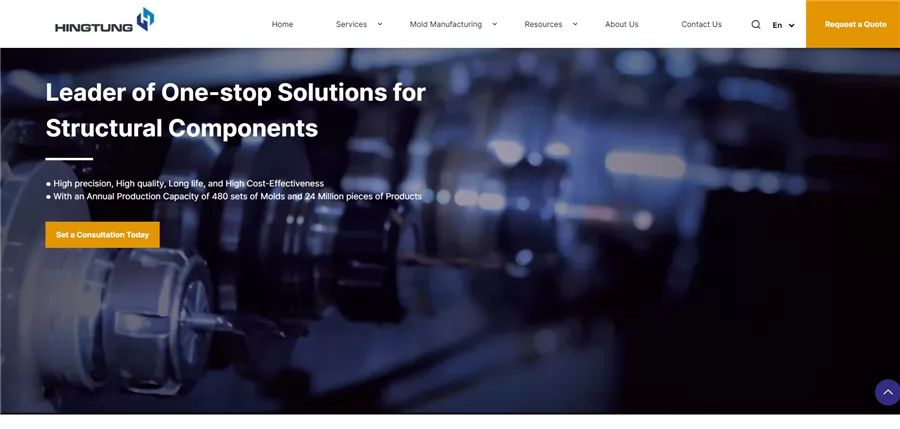
Company Profile:
Hingtung is a leading specialist in the manufacture of high-quality plastic molding services in China.It mainly provides plastic mold manufacturing, plastic product molding and assembly of finished products.
Hingtung only focuses on the injection molding method of manufacturing plastic parts, with the goal of becoming a technology leader in this field. In Hingtung , whether it is a trial mold or a mass production mold, each mold is implemented in accordance with strict standard procedures to ensure that the mold Quality of design and manufacture.
2. R&D Molders Inc
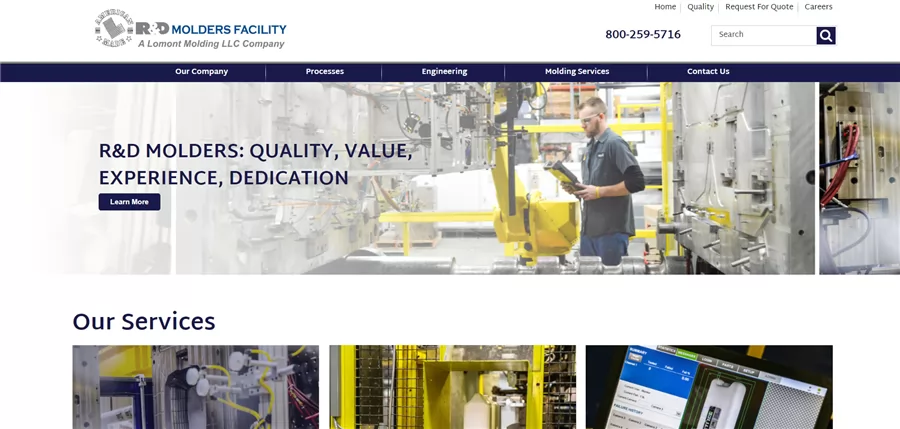
Company Profile:
For nearly 40 years, R&D Molders has been providing custom blow molding, injection molding, tooling and related secondary services for a variety of applications to a variety of customers. They have successfully provided solutions for the Medical, Industrial, Consumer Goods, Sporting Goods, Electronics, GSA/DOD, Home & Garden, and Energy industries. They firmly believe that their commitment to customer solutions comes first in everything they do. They believe the best measure of success is their high level of customer satisfaction and repeat business.
3. Rodon Inc
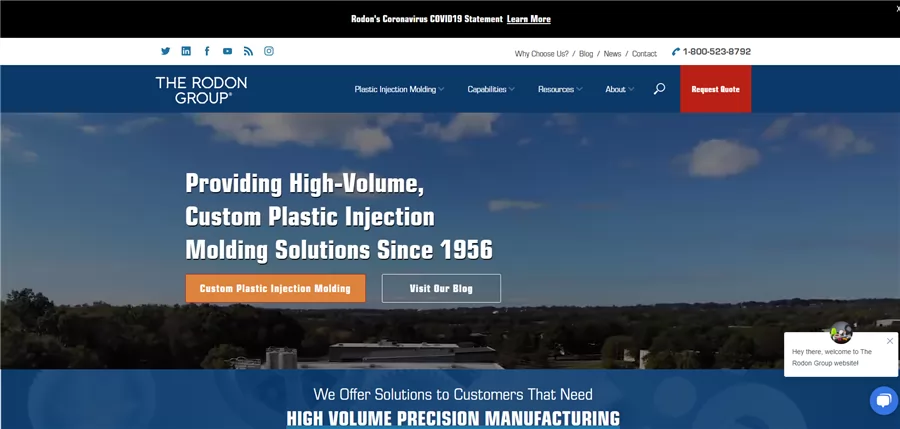
Company Profile:
Rodon has always been at the forefront of American manufacturing and is one of the most professional manufacturers of injection molding services in the United States. Since 1956, they've manufactured billions of American-made parts for multiple industries in their 125,000-square-foot facility. With over 125 injection molding machines, they are one of the largest family owned and operated injection molding machines in the United States.
For more information, please read the following articles:
-
Plastic Mold Manufacturers in China: Top 10 List 2024 - HingTung
-
Top 15 Injection Molding Companies in China (2024 Updated) - HingTung
Conclusion: The Best Industrial Injection Molding Solutions
Hingtung provides the best industrial injection molding solutions, we focuse on the development and production of precision injection molds for mid-to-high-end brands. We provide a complete set of solutions from product design/precision mold manufacturing/injection molding and assembly/after-sales service, which are widely used in home appliance shell fittings, medical and medical equipment injection molding parts, cosmetic packaging injection molding parts and other fields.
We have obtained ISO9000, ISO14000 certification, BSCI certification, 3C, and other certifications. Our customers are located in more than 100 countries worldwide.
If you need custom Injection Molding Services from China, then you can contact us directly. We can help you with anything.


